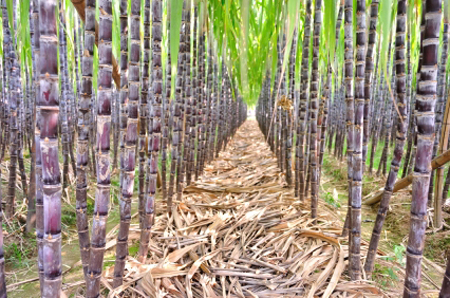India’s Sugar Refiners Get Crushed
Category: Sugar
 (The Wall Street Journal) – This is a good time for buyers of refined sugar, but for refiners in India, the world’s biggest consumer of the sweetener and the second largest producer, not so much.
(The Wall Street Journal) – This is a good time for buyers of refined sugar, but for refiners in India, the world’s biggest consumer of the sweetener and the second largest producer, not so much.
Global sugar prices have fallen to their lowest levels in nearly three years, and surplus production of cane in India isn’t helping the situation, with share prices of listed sugar companies in the country getting crushed.
Benchmark ICE sugar traded in New York has fallen from a high above 35 cents a pound in February 2011 to around 16 cents a pound recently. In the year to date, it has fallen a relatively subdued 16%, but stock prices for Indian refiners have fared much worse.
Shree Renuka Sugars Ltd. 532670.BY +2.41%–India’s biggest sugar refiner, which has expanded its operations to Brazil–is the worst performer, having lost around 48% of its stock value in 2013 Bajaj Hindusthan Ltd. 500032.BY +1.58%, India’s top sugar producer by volume, has lost 40%, while other significant players Balrampur Chini Mills Ltd. 500038.BY -0.12% and Simbhaoli Sugars Ltd. 507446.BY -1.26%, have shed 19% and 36%, respectively. All of the companies’ share prices are around three-year-low levels.
Analysts say they expect sugar share prices to stay at depressed levels at least for the next several months, potentially hitting four-year lows given the limited scope refiners have to eke out profits.
India’s sugar market is a hybrid of sorts. Cane prices are regulated on both state and federal levels, but the prices of refined sugar are governed by market forces.
Given the public approval that can be garnered by incumbent politicians whose administrations set generous prices for cane in India–where nearly two-thirds of the population is either directly or indirectly employed in the agricultural sector–it perhaps isn’t surprising that prices of the main sugar-making raw material are relatively high. Meanwhile, low international prices and ample domestic supply ensure that refiners keep the end product’s price relatively low.
In theory, the state-determined cane purchase price serves as the benchmark at which companies must buy the raw material from farmers. In practice, the price is often sweetened at the state level.
Some state governments including Uttar Pradesh, India’s second-biggest sugar producer, require mills to pay a price higher than the one fixed by the federal government to please farmers, irrespective of market conditions.
“They [the governments] have regularly hiked [sugar cane] prices for the past three years,” around 14% a year against sugar prices that have risen by just 3% a year, says Rohit Agarwal, an analyst with Kolkata-based brokerage SPA Securities Ltd.
This year, he said, stock market investors are expecting an even steeper price increase in view of federal elections that are due next year. And this is why they are betting against sugar refiners’ stock prices, he added.
“Mills are losing money on every kilogram of sugar they sell,” Abinash Verma, a top executive of the Indian Sugar Mills Association says.
In Uttar Pradesh, the cost of production stands around 35 rupees per kilogram, he estimates, while the market price is 31 rupees.
The out-of-kilter pricing scenario is putting farmers in a paradoxical situation. With sugar cane prices on the rise, they are devoting increasing acreage to the crop, but with sugar companies in straitened, circumstances, they have to stand in line to get paid.
Mr. Verma says that as of April 30, sugar companies in Uttar Pradesh, where most of the listed ones are based, owed 72.12 billion rupees ($1.2 billion) to farmers, nearly two-thirds more than they owed at the same time last year.




